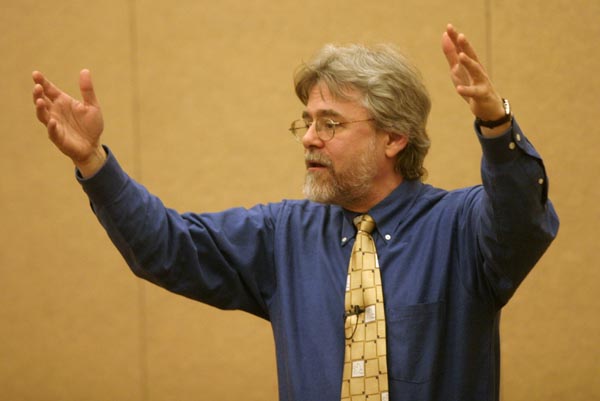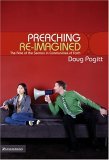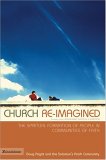SHOULDA COULDA WOULDA
If you've followed my posts from last week, you know how much this big JUBILEE event means to us. (Don't even ask how many of the boxes we've re-shelved or how many of the crumpled notes in my pockets we have deciphered or how many bills we've tried to collect; it takes weeks for us to dig out from under it all.) JUBILEE is important and strategic as its intent is to invite college students to surrender their whole lives---their whole, daily, mundane, studying, working, playing, lives--to Christ, so that God can use them to bring about His Kingdom "on Earth as it is in Heaven” thereby bringing honor to God and gladness to people in need. When such serious-minded and good-hearted faith emerges in a new generation, the hope is that they will begin to "think Christianly,” re-learning their studies in Kingdom perspective. Then, (forgive the military metaphor) they will invade the secularized, post-Christian culture to do true good everywhere. Poor schools, warring nation-states, shallow art galleries, dishonest media, unhelpful therapists, greedy businesses, unjust lawyering, vulgar TV, unethical science, boring churches.... the list goes on. And this generation of robust Christian young people will--
if they learn the habits of heart to connect belief and behavior AND develop a faith thoughtful enough to allow for both personal piety and institutional reform---take from this past weekend a dream to make a difference. Some of the books that were bought will reinforce and further explain this hope; these printed pages are seeds sown, some which will be read, pondered and will bear fruit in months and years to come.
Last night I posted a few Jubilee best sellers. Here are a few that we displayed, promoted and imagined that they would fit well the theme of our gathering, but, uh, didn’t do so well. We were disappointed that we didn't sell more of these, so, here, we present the shoulda coulda woulda list of those which are still sitting in dirty cardboard boxes in our damp basement. They are in good company, at least, fine titles all:
Engaging God's World: A Christian Vision of Faith, Learning & Living Neal Plantinga (Eerdmans) $15.00 I am encouraged to push this title every year, but the great quote on the back from John Ortberg saying that this is a great book written so well that every college student should read it didn't win the day. The first chapter is on that sense of longing that all younger folk feel--the desire to know what to do with ones life, the need for a sense of vocation. The middle of the book is a beautiful explication of the CCO shorthand for the gospel (creation-fall-redemption) and then comes a final invitation to fight the good fight wherever one finds oneself, taking up a post in the Kingdom coming. What a great book. We shoulda sold a bundle.
Creation Regained: The Biblical Basics for a Reformational Worldview Al Wolters (Eerdmans) $12.00 This new edition, I explained from up front, not only has a crisp new typeface and cover, but a great final chapter, linking Al's seminal teaching on worldview to the recent writings of Lesslie Newbigin and N.T. Wright. That young folk don't know these names is a shame. That their older friends didn't say "Holy creation-regained, Batman, this is a must-have" is an even greater shame. This is one of the top two or three books in the history of the Jubilee conference, and Professor Wolters played a pivotal role in the CCO explaining the Biblical basis for the wild-eyed prophetic talk of Pete Steen, the one who nearly single-handedly re-framed the Jubilee conference in the 70's to be what it became, even if many were perplexed by his nearly apocalyptic energy. Praise God for this new edition. Coulda promoted it better.
The Drama of Scripture: Finding Our Place in the Biblical Story Craig Bartholomew & Michael Goheen (Baker) $19.00 Up front I preached that any philosophical talk or political posturing or seminar wisdom at this content-heavy event needs to be measured by how well it lives up to the worldview of the Scriptures. This book, I said, was the best one-volume overview of the grand Story I've yet seen. Shoulda sold dozens and dozens instead of two or three. Or, at least, we should have sold the much thinner re-issue (yeah!) of Lesslie Newbigin's
A Walk Through the Bible (Wipf & Stock; $9.00) which were his final radio talks on the BBC before he died a few years ago. Newbigin was the Anglican Bishop of the Church of North India and one of the finest missionary thinkers of the 20th century. His overview of the basic plot-lines of the Biblical story is sweet and simple and very helpful. While I'm on a roll, there should have been more of a buzz about Walsh & Keesmaat's spectacularly important postmodern reading of Paul, found in the most exciting Bible study book in years,
Colossians Remixed: Subverting the Empire (IVP; $22.00.) I sold quite a few last year when I pointed out my name on the back. Ha! Didn't want to use that ploy again this year, and now I regret it. Woulda if I coulda.
Free of Charge: Giving and Forgiving in a Culture Stripped of Grace Miroslav Volf (Zondervan) $12.99 Maybe younger folk aren't ready for this kind of serious reflection on the Cross, written by a world-renowned theologian (who teaches at Yale Divinity School and did his first theological work reflecting on the Bosnian genocide in his homeland a few years back.) Still, given that this generation watches
Hotel Rwanda and kids were wearing
Invisible Children tees, this should have been more popular. I blogged about it a few weeks back, noting that it is the Archbishop of Canterbury's Lenten book, so people are reading it this season all over the world.
Adventures in Missing the Point Brian McLaren & Tony Campolo (Zondervan) $16.99 What a fun and rowdy book, two amazing thinkers, funny and thoughtful men who care deeply for the broad church and the evangelical tradition spout off their concerns about how the gospel has become "neutered" by a cultural accommodating church. These two best-selling guys (Campolo was there, remember) shoulda been seen as a Lennon-McCarthy, Laurel & Hardy, dynamic-duo, one-two-punch that can't be beat. New in paperback, complete with study guide, I shoulda pushed this harder, told more people about it, inviting people to read a page or two. A few short paragraphs would show off the brilliance of these guys together, the issues they raise, the differences they debate. Don't miss the point---this kind of feisty banter will help us get it right.
Not Just Science: Questions Where Christian Faith and Natural Science Intersect edited by Dorothy Chappell & E. David Cook (Zondervan) $24.99 What a great collection, with wise, introductory chapters on math, computers, engineering, chemistry, agriculture, biology, geology, environmental science, neuroscience...Jennifer Wiseman, a lead astronomer at NASA who works at Hubbell was the science speaker at Jubilee and she has a very nice chapter in here. So does Vincent Bacote, who brings his theological mind to bear on the relation to theology and the natural sciences. This has basic stuff that any collegiate (or anyone who reads the popular science magazines or watches PBS) would find helpful. And there are some unique treasures---a bit of Christian insight about science in various cultures, for instance, and a good piece on health care (not the only piece that swerves towards the social sciences a bit.) The forward by Harvard historian of science (himself a devout Mennonite Christian), Owen Gingerich, shows this to be a pretty significant work. It is a grand, a good collection, and we loved showing off its bright orange cover. Unless one is majoring in poetry at a school that demands no math or science, this kind of a resource could be a lifesaver.
Talking the Walk: Letting Christian Language Life Again Marva Dawn (Brazos) $22.99 Marva was a huge hit at this event a few years ago, when she did three keynote presentations. She was willing to return a year later to do a smaller workshop—she was that thrilled with this exciting event so laden with potential. Her Sabbath book was popular, and her one on sexual ethics is standard. We even sold a few of the one that critiques the ideologies of affluence and the subsequent hopelessness of our times. This new one contains elegant and brief meditations on words that are demeaned, theological concepts that have become commonplace but misunderstood, all suggesting ways to recover the kind of mature theological language that will sustain radical discipleship.
How do you speak of the significance of such things under the blare of the loud band, after the salsa dance, between students asking for books on dating or a book to give to a disbelieving roommate? What is the place of explaining the meaningful importance of these good books when the first question a sophomore asks is if we have books to help her recover from the broken heart she has from her parents divorce? Amidst all this personal need, between Tony’s exciting call to missional service and the workshops serious call to think Christianly in the classroom, somewhere, we shoulda raised the question of theological integrity. This book coulda helped.
Here I Am: Now What On Earth Should I Be Doing? Quentin Schultze (Baker) $11.99 My, my, what a lovely little book, powerful, clear, compelling and full of Godly good sense. I think Q should be a Friday night Jubilee speaker, offering this nice teaching that takes us beyond Purpose Driven Life. I gave it a pretty quick shout-out in my Saturday morning promo, but to no avail. Still better, deeper, wonderfully written, is one of our all time favorites:
The Call: Finding and Fulfilling the Central Purpose of Your Life by Os Guinness (Word; $17.00.) You know I think it essential. I shoulda tried harder. That is a classic to read and re-read. I think I first heard Os at an old Jubilee in the mid-70’s. I woulda been sweet to sell a bunch of that one. That would have made Jubilee nearly perfect.
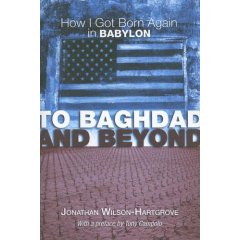
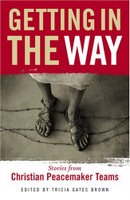 edited by Trician Gates Brown (Herald Press) $17.99 From Hebron to Haiti, Iraq to Columbia, these brave folks are doing what we all know needs to be done if the faith-based peace witness is to have integrity: sacrifice for peace as much as others sacrifice for war. Highly recommended.
edited by Trician Gates Brown (Herald Press) $17.99 From Hebron to Haiti, Iraq to Columbia, these brave folks are doing what we all know needs to be done if the faith-based peace witness is to have integrity: sacrifice for peace as much as others sacrifice for war. Highly recommended.
